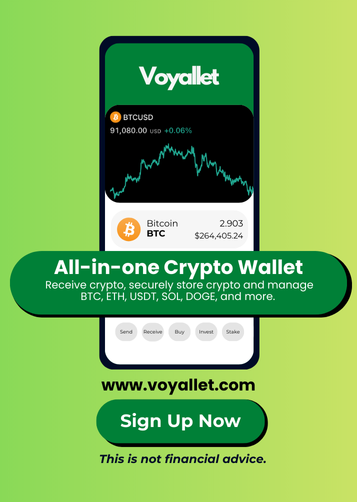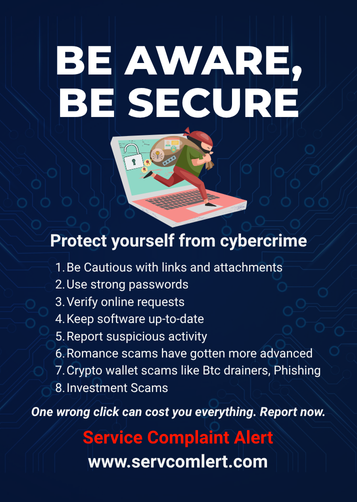The excitement of landing in a new city — new sights, scents, and sounds — often makes us forget the practical side of travel. But in the digital age, our wallets aren’t just leather and cash anymore. For many travelers, cryptocurrency is becoming as essential as a passport. It’s fast, borderless, and immune to currency exchange headaches. Yet, that convenience comes with its own set of risks — some subtle, others alarmingly aggressive.
The rise of crypto use abroad means scammers, hackers, and opportunists have new ways to target travelers. Understanding these risks and learning how to protect yourself can be the difference between a smooth journey and a financial disaster.
Understanding the Unique Risks of Using Crypto While Traveling
Crypto transactions are permanent. There is no “chargeback” or dispute resolution hotline to call when something goes wrong. That finality makes them attractive to thieves. While at home you may use crypto in familiar, secure environments, travel exposes you to unknown Wi-Fi networks, unregulated exchanges, and merchants whose trustworthiness you can’t easily verify.
Another challenge is legal and regulatory differences. Some countries have strict rules on crypto use — others none at all. This means you may inadvertently violate local laws or end up in unprotected territory if something goes wrong. While cryptocurrency is borderless, law enforcement isn’t.
Public spaces also present heightened security concerns. Shoulder-surfing at cafés, public Wi-Fi data interception, or QR code scams at tourist markets are increasingly reported. These low-tech methods exploit high-tech tools.
Choosing the Right Tools Before You Leave
Before boarding a plane, you should already have a secure crypto setup that minimizes your exposure. Relying solely on exchange-based wallets is risky, as they are connected to the internet 24/7. Instead, hardware wallets or secure mobile wallets with multi-factor authentication should be your base layer of defense.
Platforms like Voyallet integrate storage, staking, and crypto card functions, allowing you to avoid juggling multiple apps while ensuring higher security standards. Even if you’re only planning to use crypto for a few transactions abroad, using a wallet that prioritizes encryption and user control over private keys is essential.
Offline backups are equally important. A securely stored recovery phrase, kept separate from your devices, can be a lifesaver if your phone or wallet device is lost or stolen during travel.
Avoiding Public Wi-Fi Pitfalls
One of the most common mistakes travelers make is transacting over public Wi-Fi. Free hotel networks, airport lounges, and coffee shop hotspots are often poorly secured. Hackers can intercept data, inject malicious code, or redirect you to fake login pages.
If you must connect, always use a reliable VPN service to encrypt your traffic. Better still, use your mobile data hotspot for sensitive transactions. The small cost of extra data is insignificant compared to the potential loss of funds.
Also, disable automatic Wi-Fi connection features on your devices. These can cause your phone to latch onto rogue access points created specifically to steal login credentials or wallet access information.
Verifying Merchants and Payment Requests
When abroad, it’s tempting to pay for goods and services instantly with crypto — especially when vendors advertise “crypto accepted here.” Unfortunately, scammers exploit this enthusiasm by setting up fake merchant profiles, offering counterfeit QR codes, or switching wallet addresses at the last moment.
Always confirm the payment address with the merchant verbally and visually. For larger transactions, send a small test payment first. This extra step can save you from sending your entire payment to a fraudulent address.
Check transaction details twice before hitting “send.” Once a transfer is made, it’s irreversible — a single misplaced character in a wallet address can mean permanent loss.
Being Wary of “Helpful” Strangers
Scams targeting tourists often involve overly helpful locals offering to assist with your crypto transaction. They might suggest a “better exchange rate” or walk you to an ATM-like crypto kiosk. In reality, they may be leading you to a rigged machine or swapping your intended payment address for their own.
While it’s natural to accept assistance when navigating foreign systems, remember that crypto transactions don’t require intermediaries. If you’re unsure, step back, do your own research, and only proceed when you’re confident.
Keeping Your Emotions in Check
Travel can be stressful, and scammers know how to exploit that. A sudden claim that your account has been “frozen,” an urgent email from a supposed exchange, or a pop-up asking you to “verify your wallet” while you’re distracted at a busy station are all tactics designed to make you act before thinking.
Slow down. Double-check any message before responding, especially when abroad. Even legitimate-looking messages can be cleverly faked through phishing. Using wallets that require biometric verification or additional security steps for transactions helps prevent hasty mistakes.
Planning for Emergencies
A good travel crypto plan includes a contingency strategy. Keep only a small amount of crypto in a “hot” wallet for daily use, with the rest in a secure “cold” wallet you can access remotely if needed.
Have a trusted contact at home who knows how to assist in case of wallet loss. This person doesn’t need your keys but should know your backup process and where recovery phrases are stored.
If you suspect you’ve been compromised, act immediately — transfer remaining funds to a secure wallet, change all related passwords, and notify relevant platforms. While funds may not be recoverable, acting fast can prevent further loss.
Using Crypto Cards Safely
Crypto debit or prepaid cards offer convenience for travelers, letting you pay in local currency without worrying about exchange rates. However, they still carry risks. Lost or stolen cards can be used until blocked, and some providers may lack robust fraud protection.
Choose cards from well-established providers with real-time transaction notifications and instant freeze features. For example, some wallets — like Voyallet crypto card — allow you to manage your crypto and card in one place, making it easier to monitor spending while traveling.
Avoid using your card at suspicious ATMs or handing it over for manual processing at unfamiliar establishments. Skimming devices and compromised terminals remain a real threat in many tourist-heavy areas.
Actionable Takeaways
- Secure your wallet before you travel — use hardware wallets or trusted mobile apps with multi-factor authentication.
- Avoid public Wi-Fi for transactions; use mobile data or a VPN.
- Verify payment addresses and never rush transactions.
- Keep only small amounts in daily-use wallets, with the rest in secure storage.
- Be alert for social engineering tactics — fake urgency, helpful strangers, or too-good-to-be-true offers.
- Use crypto cards with security features, and monitor transactions in real time.
Closing Insight
Crypto offers unmatched freedom for the global traveler, but that freedom comes with personal responsibility. By preparing ahead, staying alert, and using secure tools, you can enjoy the benefits of borderless currency without falling into the traps set for the unprepared. The key isn’t avoiding risk entirely — it’s managing it intelligently so your focus stays on your journey, not on recovering from a preventable loss.


















